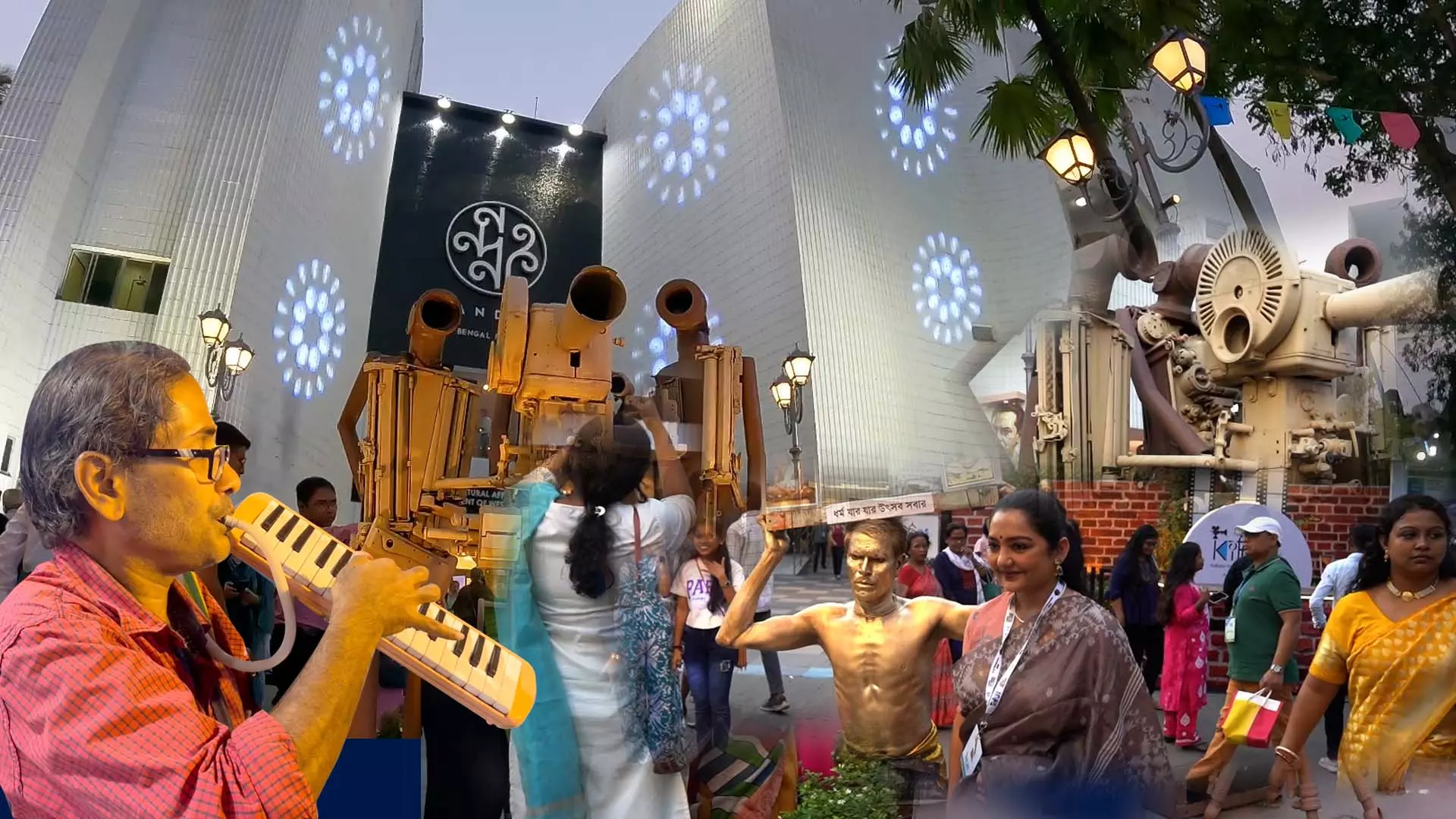
31st Kolkata International Film Festival: A tribute to Ritwik Ghatak and world cinema
At the 31st Kolkata International Film Festival, Ritwik Ghatak’s centenary and digitally revived classics highlight global storytelling and cinema’s timeless reach

The 31st Kolkata International Film Festival (KIFF), held from November 6 to 13, 2025, placed its spotlight on film restoration and paid homage to Ritwik Ghatak on his 100th birth anniversary. It brought together 215 films from 39 countries, celebrating stories that connect people everywhere. From Nandan to Nazrul Tirtha, the city became alive with film lovers, filmmakers, and that unmistakable Kolkata magic.
Framed under the theme cinema connects the world, KIFF 2025 brought together filmmakers, cinephiles, and global delegates in Kolkata to celebrate both the legacy of celluloid classics and the promise of digital preservation.
A major highlight of this year’s festival was the effort to restore and digitally preserve classic films that risk fading into obscurity. Restored versions of Meghe Dhaka Tara, Komal Gandhar, and Subarnarekha were screened to revive Ghatak’s haunting imagery and raw emotion.
Goutam Ghosh, chairperson of KIFF 2025, captured the urgency: “Most of the films … shot in celluloid … should be restored properly … otherwise … you miss the experience of time … I think it is very very important … restoration is very call of the day, I guess.”
Also read: Kanu Behl interview: ‘Agra is a film about desire and sexual repression’
He elaborated that many producers of the past neglected original negatives, which were stored poorly. Festival efforts now combine surviving prints, match fragments, and digitize them to preserve both art and memory.
Honouring Ritwik Ghatak
At the heart of KIFF 2025 was a centenary tribute to Ritwik Ghatak, celebrating his continuing influence on Bengali and world cinema. Ghatak’s films, known for their emotional intensity and poetic realism, resonated powerfully in their restored form.
These screenings reinvigorated his vision, showing that Ghatak’s work remains deeply relevant to modern audiences — not just as historical artifacts, but as living, breathing stories.
The festival’s inaugural event took place at the Grand Dhono Dhanyo Auditorium, where Mamata Banerjee, Chief Minister of West Bengal, inaugurated the proceedings alongside artists and international guests.
Veteran filmmaker Ramesh Sippy delivered the Satyajit Ray Memorial Lecture, bridging the golden age of Indian cinema with its digital future.
Film enthusiast Brinda Srinivasan expressed her delight at the restored classics: “Very happy about the digitisation of some of the old masters’ films … it gives us a much clearer picture … especially for the young generation … who would like to see films … in a more … articulated … correctly.”
Also read: Agra review: Kanu Behl’s devastating study of sexual repression, dysfunction and trauma
Her comments reflected a broader sentiment at KIFF: that restoration isn't just technical - it's deeply emotional and generational.
This year’s focus country was Poland, with a curated slate of its cinematic masterpieces bringing Krakow’s artistic heritage to Kolkata. The inclusion underscored the festival’s global outlook.KIFF 2025 also introduced two thematic sections: Beyond Borders and Unheard India. These explored migration, identity, and the richness of lesser-known Indian languages, with screenings held at venues including Nandan, Nazrul Tirtha, and Rabindra Sadan.
Throughout the week, KIFF became a space of connection. As the lights dimmed and projectors hummed, audiences from different walks of life and geographies came together to celebrate cinema’s unifying power.
In the words of the transcript, people “flock to see films from multiple countries … end up forging connections … realise that cinema speaks the same language across the world.”
The content above has been transcribed from video using a fine-tuned AI model. To ensure accuracy, quality, and editorial integrity, we employ a Human-In-The-Loop (HITL) process. While AI assists in creating the initial draft, our experienced editorial team carefully reviews, edits, and refines the content before publication. At The Federal, we combine the efficiency of AI with the expertise of human editors to deliver reliable and insightful journalism.

